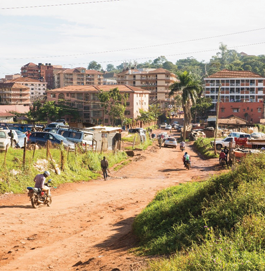Meeting refugee needs in EU cities
Migration flows into the EU have increased in recent years and European cities have become increasingly pivotal in managing the influx of migrants and ensuring their inclusion into societies. Ecorys investigated the various challenges and needs of refugees in relation to the services and facilities offered by EU cities. The research highlights challenges in the field of housing and healthcare for refugees. The situation underlines the need for cooperation and coordination to meet the needs of refugees
Background
Migration flows into the EU reached their highest level since 2016 with nearly 1 million asylum applications in 2022. This influx predominantly comprises individuals from conflict-affected, economically unstable, or climate-change-impacted regions. European cities are increasingly pivotal in managing the influx of migrants and ensuring their inclusion into societies; a role that has progressively shifted from national governments to local administrations. However, cities face significant challenges in organising migrant support and managing the integration process, particularly in ensuring equitable access to essential services such as healthcare, housing, employment, and education.
The lack of funding and financing options are among the key underlying factors that make providing needed support to refugees challenging for cities. Therefore, the European Investment Bank commissioned Ecorys in 2023 to better understand these financing gaps and examine the challenges and issues municipalities face in managing migration flows and organising long-term support. Desk research, literature review, interviews with key stakeholders and an online survey were used as methods for data collection. Additionally, three European cities were selected as case studies to get a more complete understanding of the matter at hand.
Key findings
Lack of suitable housing is the most pressing issue cities struggle with. Housing financing needs include both temporary housing solutions as well as long-term housing investments. Cities also express the need to receive financial support when providing different services to refugees that spam across sectors, such as healthcare and education (e.g. support for mental healthcare, language courses, adult education, child-care, other social integration programmes). Other challenges for EU cities include providing for the diverse and evolving needs of different migrant groups and addressing the specific requirements of vulnerable groups like unaccompanied minors and women at risk of gender-based violence.
Most of the constraints and challenges cities face are, however, not new, they are merely exacerbated due to recent surges in refugee flows as a result of Ukraine crisis. Consequently, cities face a complex balancing act. They must manage the immediate and urgent needs arising from fluctuating refugee influxes on either/or transit while simultaneously planning for the long-term inclusion and integration of migrants who plan to settle and stay. This challenging task unfolds within a context of limited resources, autonomy and budget control and political tensions.
This situation underlines the need for cooperation and coordinated action between different sectors to develop sustainable and long-term solutions that meet the needs of refugees. Implementing such solutions is crucial for the social and economic enrichment of EU cities and is an essential step towards a more inclusive and supportive community.

15 April 2024
2 minute read
Key Experts
Milda Saltenyte-Robbers
Senior Consultant
Saskia Vossenberg
Sector leader



